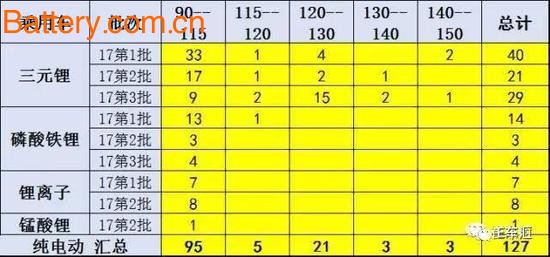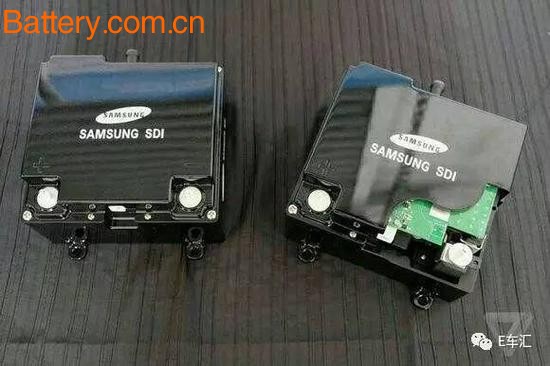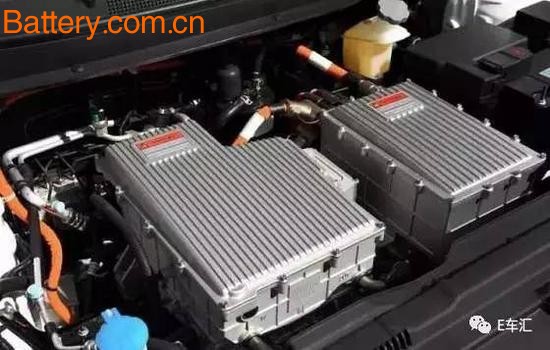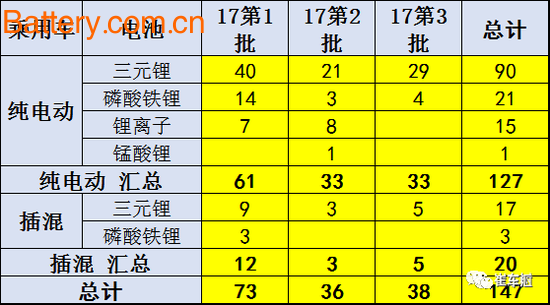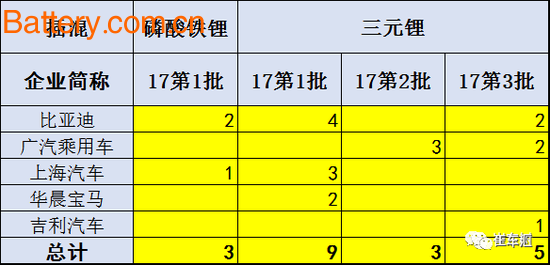Recently, South Korean SK Innovation (hereinafter referred to as SKI) and new energy automotive battery plant in China to set up joint venture in China, announced that it has discontinued across the board. In this competition about batteries, it was finally affected by political policies. After the import of Korean batteries was restricted, the joint venture Korean battery companies also suffered a fatal blow. Subsequently, the Ministry of Industry and Information Technology released the "Recommended Models for Promotion and Application of New Energy Vehicles (3rd Batch in 2017)" (hereinafter referred to as the catalogue). From the latest catalogue, although the domestic battery companies have been protected by policies, they have risen. Does not mean once and for all. In order to urge enterprises to improve the battery technology level, the four ministries and commissions announced the 2017 new energy vehicle subsidy policy, in addition to continuing to impose requirements on the cruising range, the power battery system quality energy density is also required. The proposal of this requirement not only forced the enterprise to improve the battery technology, but also the technical improvement requirements of some new energy vehicle manufacturers. Korean ternary lithium battery devastating blow When it comes to ternary lithium batteries, they have to think of Korean battery companies. Since the "standard conditions for automotive power battery industry" to improve battery specifications, Samsung SDI, LG Chemical, Panasonic and other Japanese and Korean battery giants have not yet entered the catalog. It is worth noting that the fifth batch of “Recommended Models for the Promotion and Application of New Energy Vehicles†announced by the Ministry of Industry and Information Technology at the end of 2016 has seen an incredible scene: the total number has changed from 498 models to 493 models. Up to now, the Ministry of Industry and Information Technology has issued a total of four batches of "standard conditions" catalogue, a total of 57 power battery companies were shortlisted, and Samsung SDI, LG Chemical, Panasonic and other Japanese and Korean battery giants have not yet entered the catalog, resulting in the above-mentioned enterprises in China Battery business development has been greatly affected. In fact, since the new energy subsidy policy was adopted last year, the domestic power battery business including Samsung SDI and LG Chemical has been affected to varying degrees. Recently, after the progress of Samsung SDI and LG Chem's domestic power battery business was in trouble, SKI stopped production at the end of last year due to the reduction in battery order. In addition, LG Chemical's power battery factory in Nanjing, China, also reported rumors of a lockout. Previous media reports said that its production line is basically idle, and it is negotiating to sell the project to SAIC. Low-cost electric vehicles are affected In addition to South Korea outside the affected cell lines, part of the self-same type of new energy vehicles affected by the policy. According to the data analysis of the National Passenger Car Federation, in the pure electric vehicles in 2015, the A00 class car accounted for 63%, and the A0 class became the main sales force of pure electric vehicles. However, for the sales analysis in the first two quarters of 2016, Class A pure electric vehicles are rising and exploding, reaching about 37% of the pure electric share. Although the sales of new energy vehicles in the first two months of this year have experienced a cliff-like growth, they can also explain the policy's deterrent effect on new energy vehicles. According to the relevant regulations in the 2017 New Energy Vehicle Subsidy Policy, the mass energy density of the pure electric passenger car power battery system is not less than 90Wh/kg, and the subsidy is 1.1 times higher than 120Wh/kg. Therefore, those who rely on the control of battery costs will have to be forced to upgrade, increasing the importance of the battery energy system, even if you do not apply for 1.1 times the subsidy, you must meet the minimum standards to obtain policy subsidies. Power battery density increase Shortly after SKI announced the suspension of production, the third batch of catalogues released a total of 634 models of 87 companies, a significant increase compared to the second batch of promotion catalogues. According to the information on the new energy vehicle battery released by the comprehensive catalogue, the new energy vehicle enterprises insisted on taking the ternary lithium battery route. Especially in the case of pure electric vehicles, due to the requirements of the energy density of the power battery system in the latest subsidy policy, the pure electric vehicle equipped with the ternary lithium battery 120-130 Wh/kg in the third batch of catalogues became the main model. After all, it is difficult to get a subsidy of 1.1 times for lithium iron phosphate batteries, and the actual market competitiveness will drop sharply. Similarly, in plug-in hybrid models, lithium iron phosphate batteries are no longer the protagonist, except for the first batch of applications with lithium iron phosphate battery models, from the second batch of catalogues to the current third batch, no release Plug-in hybrid model of lithium iron phosphate battery. Even if it has been insisting on promoting lithium iron phosphate battery giant BYD, it is also adjusting the battery technology route. For example, BYD Qin 100 and Tang 100 replaced the battery from lithium iron phosphate to lithium nickel cobalt manganese oxide ternary lithium battery. At present, the strategic direction of China's development of new energy vehicles is becoming more and more clear, and the corresponding market scale is expanding rapidly. The requirements for basic technologies and facilities are also increasing. In the early stage of the development of new energy vehicles, battery technology attracted the attention of the industry. The state set up a key special project of “new energy vehiclesâ€. When technology and policies are promoting the development of the battery industry, China’s battery technology is leading the global industry. Develop and lay the foundation for the development of new energy vehicles. Leisuwash EG Vehicle Wash Disinfectant Equipment Vehicle Wash Disinfect Equipment,Touchless Car Wash,Touchless Vehicle Wash Disinfect Equipment,Leisuwash Vehicle Wash Disinfect Equipment Hangzhou Leisu Cleaning Equipment Co.,Ltd , https://www.sdtouchfreecarwash.com
